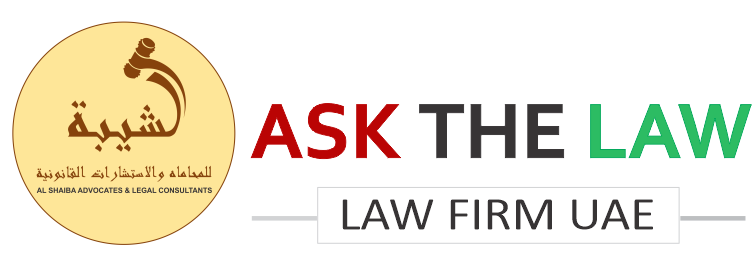
Abu Dhabi Judicial Department Explained
UAE believes in providing justice to everyone, whether Muslims or non-Muslims, without any discrimination. Having a diverse population, the legal system of the UAE is based on Sharia and civil laws, to accommodate locals and expatriates from all over the world. Muslim expatriates and non-Muslim expatriates, both are accommodated in UAE.
However, the Abu Dhabi Judicial Department (ADJD) operates in Abu Dhabi, ensuring to respect rights of the residents and expatriates. It reflects the brilliant management and policy making for the smooth government operations of Abu Dhabi government.
The authority has been assigned certain but very important tasks to ensure public justice in Abu Dhabi. Our attorneys in Abu Dhabi are the great source of legal knowledge. Working with courts, public prosecution, and all other legal services in ABU DHABI become smooth in operations under ADJD. The lawyers in Abu Dhabi work for individual and corporate cases.
Operations of the ADJD
The ADJD has structured its operations by ensuring justice prevails with transparency, results and utmost efficiency. Let us define it further:
- Judicial Council: The council is operated by senior legal advisors. They monitor the judicial performance, appoint a judge, and make promotions, ensuring transparency and judiciary integrity.
- Department Administration: The administration department strategizes the judicial laws and provides administrative support services for smooth operations.
- Public Prosecution: The Attorney General, who is responsible for overseeing the technical, leads it and administrative tasks for the criminal cases, ensuring justice and equality are not compromised. Attorney General is a state representative.
Court System under the ADJD
The ADJD has a three-level court system for justice and effectiveness in legal matters:
- Court of First Instance: All cases are heard in this court for the first time. May it be related to commercial, personal status, criminal or civil cases.
- Court of Appeal: After the hearings are conducted in the Court of First Instance, the judge provides the verdict. If any of the parties do not agree with the court’s decision, they can appeal to the Court of Appeal. The appeals are reviewed based on the judge’s decision.
- Court of Cassation: Lastly, the case can be dragged into the Court of Cassation where justice rests in the final stage. Whatever has happened in the first two courts is discussed, ensuring justice prevails and no legal errors are made in those judgments.
These courts in the UAE work with transparency.
New Developments in ADJD
Recently, the ADJD has created new legal reforms and developments to enhance the efficiency and accessibility of judicial cases:
- Law No. 6 of 2024: The recent development in this law has introduced specialized courts within the basic legal system.
- Digital Transformation: Smart portals and apps have been introduced by ADJD to have better accessibility of legal cases to the public.
- Case Processing Efficiency: Previously, legal cases would take too much time because there was no law. However, the law ensures the effectiveness of the first-instant cases by resolving them within 40 days.
With these reforms, ADJD can improve its judicial system and keep evolving with time.
Handling Personal Status Matters in Abu Dhabi
The Personal Status matters are resolved through family law that is inculcated by the ADJD in the UAE, ensuring justice for Muslims and non-Muslims:
- Civil Family Court: The non-Muslim family cases related to marriage, divorce, child custody, alimony, and inheritance are resolved through the civil family court.
- Joint Custody: The parental responsibilities have been made equal, ensuring a balanced parenting skill and the child’s personal and emotional development, till they reach 18 years of age.
- Simplified Divorce Procedures: Divorce cases have become accessible and less time-consuming by streamlining the process with effectiveness and efficiency in those cases.
All of the above legal reforms highlight the ADJD’s efforts to foster equality and inclusion in judicial cases.
International Cooperation and Enforcement of Judgments
To make all those legal reforms effective, the ADJD ensures to meet the international standards of the judiciary by incorporating international laws in various ways:
- Memoranda of Understanding: Signing MoUs is helpful to both parties as they can facilitate each other in terms of their legal expertise whenever needed.
- Foreign Judgments: Foreign investors and expatriates feel more secure if the ADJD is following international legal standards in its judicial operations.
Alternative Dispute Resolution Mechanisms
Recently, the UAE legal structure has taken a new turn where the legal experts want to unburden the courts by resolving cases themselves. It is called the alternative dispute resolution (ADR) method. Legal professionals have various ways to resolve the legal matters without involving the courts:
- Mediation and Arbitration: These methods are resolved in quick time with cost-effective strategies, ensuring justice is served right there, with the support of ADJD.
- Rehabilitation and Correctional Policies: Instead of imprisonment, the alternative method to resolve the dispute could be rehabilitation. The offenders can be sent to rehabilitation centres rather than put behind bars.
Such decisions reflect the flexibility in the legal system of the UAE. Choosing ADR methods ensures justice, less negative impact on society as rehabilitation support is better than imprisonment, and court cases can be resolved through mediation.
Training Aspects of Legal Education and Professional Development
The ADJD is working closely with legal professionals to enhance their skills in making better decisions for legal cases:
- Abu Dhabi Judicial Academy: It provides different programmes for the judges, prosecutors and lawyers that would enhance their knowledge and skills to understand and work efficiently in the UAE legal system.
- Workshops and Seminars: Events like workshops and seminars add knowledge and exposure to the lawyers and judges.


